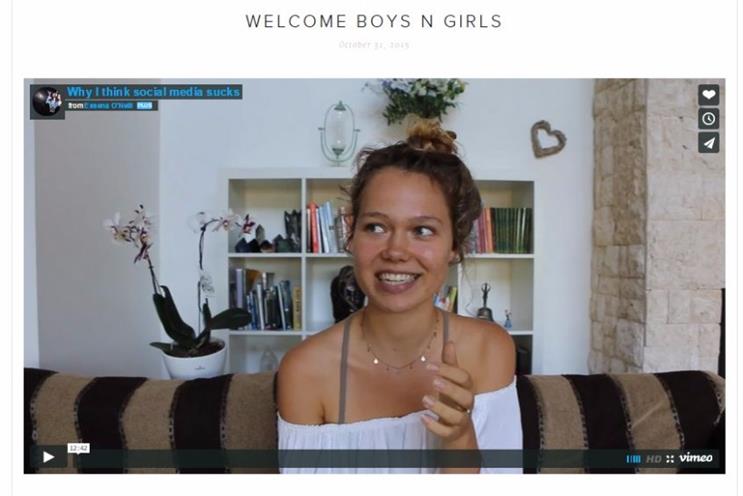Social Media is not real life
By now, everyone has heard of Essena O’Neill. The 19-year-old influential Instagrammer, blogger and model who recently – through a very tearful YouTube video - announced she was to give up a career on social media for a more authentic, holistic life. Although much is being said about Essena’s approach (can you really condemn social through social?), there is an important message for brands in it.
In today’s digital world, the hot target is my generation – the so-called ‘millennials’. We’re young, digitally engaged and always tuned in. We love to spend more money than we make, we want the best, the newest and the most interesting experiences. Unlike the generations of yore, we look to our peers for guidance. The beauty gurus, the YouTube gamers, the plus-size bloggers, the #foodporn Instagrammers. These people are just like us, and are the real tastemakers in our eyes. ‘Madonna drinks coke so you can too’ has turned into ‘Zoella wears MAC so use this exclusive code to get 20% off’. It made sense that brands – grappling with how to talk to young millennials – would try to capitalise on this. But the mistakes made along the way have revealed the less genuine face of our generation’s heroes.
If it’s not a brand partnership that’s representative of their real life, it creates an unsustainable culture, breaks trust, and as we’ve seen, breaks the influencers themselves
In a video on her new website , Essena says "Culture creates validation and insecurity," […] I did everything in my power to prove to the world that 'Hey, I'm important' ... I was miserable because of numbers I saw on a screen. Even with all these followers, I don't know what is real and what is not."
Sadly, to those who have grown up using social media, this is not uncommon. Add brand endorsements to the mix, and the stakes get higher, real fast. Our industry puts a lot of faith in these young digital influencers to promote their products and bridge the gap – but if it’s not a brand partnership that’s representative of their real life, it creates an unsustainable culture, breaks trust, and as we’ve seen, breaks the influencers themselves.
It doesn’t need to be this way. As a millennial, I want to offer three bits of advice to brands looking to speak to my generation through social.
Be transparent
Influencers are supposed to be a breakaway from traditional marketing models. The reality TV generation expects some rawness, less polish, honesty with product placement, transparency about financial incentives – to paraphrase Tumblr, we need to see the receipts. From lipstick swatches to Yelp recommendations, if we can see the evidence and it does what it says on the tin, then we will gladly part with our pennies.
Know your advocate
Never choose a person solely based on their reach and fan base, but try going for a person who loves your brand, or at least could love your brand. Anyone you approach to champion your products should always be an advocate. We’re people who have grown up with deep brand affiliations, we’re ok with it. But we can smell a fake from miles away. Don’t force it- we want to love brands, and we want our advocates to love those brands as deeply as we do.
Be more discerning
Think about the quality of what you’re putting out there. Choose someone who is going to be passionate about your product and what it does for them. An advocacy programme should be a symbiotic relationship; they should be getting as much from you as you get from them. Essena went back and edited various photos of products, like tea, that she had been given to promote, but she should have wanted to promote them in the first place.
Brands are not solely to blame in this situation, but as the experienced party they have a moral responsibility to their client and their audiences. Of course, Essena thought she knew what she was doing, but can a teenager just starting to formulate their own identity really understand the effect their actions will have on others as well as themselves? At what point does promotion become exploitation?
Essena is now using her incredible reach (helpfully expanded by her decision) to promote a lifestyle she actually truly believes in - veganism and environmentalism - and to explore her creativity. I wish her well with it. You can’t put a price on passion, so let’s never fake it.


